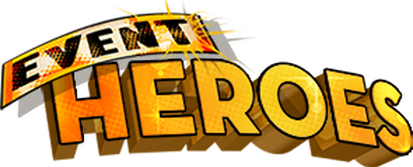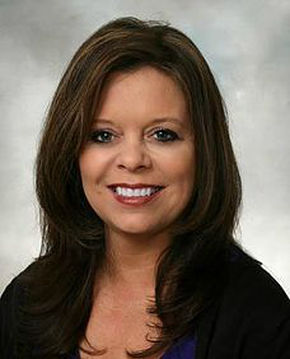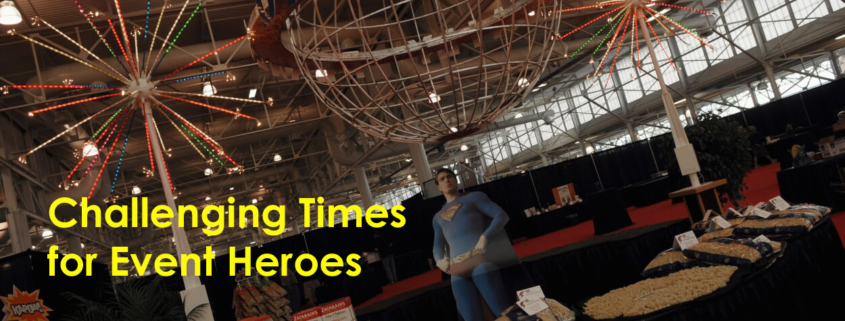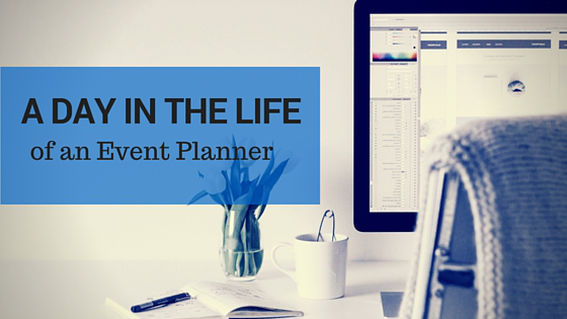This blog and my social media stream are filled with helpful guidance for event planners. Recent posts here have covered topics like how to choose an event theme, how to use networking to build your event planning business, how to pick the ideal venue, and how to find the right vendors to work with.
That won’t change, even with live events shut down due to the coronavirus. Why? First, because the lock down is temporary. Just because we aren’t running live events right now doesn’t mean we should stop thinking about planning them or how to make our future events better. We will be producing live events again at some point.
When? No one knows for sure, but some of the best-informed sources predict that restrictions—at least some restrictions, in some places—will start to be eased before the end of May.
That doesn’t tell us exactly when live events will resume, but it’s worth noting the Democratic National Convention (starting August 17th) and Republican convention (August 24th) are both still on, at this point. That would indicate live events in the U.S. could start back up again sometime between early June and mid-August.
Second, this down time is excellent time for event professionals to brush up on your skills. Read this blog (of course!) as well as other leading event blogs and event industry publications. Listen to industry podcasts. Read business books. Maybe even pursue your first, or additional, event professional certifications.
Here are eight more great ways, beyond the obvious, to make this industry down time as productive as possible.
Tackle your “someday” list. We’ve all got a to-do list like this! Someday I’ll clean out my warehouse. Someday I’ll reorganize my office. Someday I’ll update my website. “Someday” is now!
Update your business plan. This should ideally be a “living” document that helps keep you on track, not a document collecting dust on a shelf. Pull it out, see how it compares to your real business, and update it. While you’re at it, update any forms, vendor contracts, and other business documents you use regularly.
Revisit your ideal client profile. Is it still the same? Your business has almost certainly evolved over time. If your ideal target client profile has changed, update that—along with all of your messaging (website, business cards, brochures, direct mail pieces, etc.) to make sure your marketing is hitting the right mark.
Reach out to vendors, venues…even competitors! Check in on them. Ask how they are doing, what they are doing, and if there is any way you can help. Even other planners you compete with may also be people you turn to (or who turn to you) if you run out of supplies, need to borrow equipment, or even for business referrals when you (or they) are booked or come across an opportunity that isn’t quite the right fit.
Look for ways to team up with vendors/competitors to produce something needed now. For example, helping with food pickup and delivery for medical pros and first responders.
Event Industry News recently reported on a network of event organisers and suppliers formed in the U.K. to “pool their resources and work together to assist with requests from the NHS, local government, charities and any other organisations that need help in the fight against the virus. The group includes suppliers with access to generators, furniture, comms equipment, tents and marquees, outdoor and indoor audio equipment, outdoor and indoor lighting, vehicles, staging equipment, heating equipment, venue dressing and many other items.”
The Professional Convention Management Association (PCMA) has put together a COVID-19 news and resources pages for event professionals, which includes a section on how organizations can help their local communities.
And BizBash has reported on how caterers, florists, venues, and other event vendors, from New Hampshire to southern California. are finding ways to help in their communities. These activities include donating food and other items to shelters and churches; serving free lunches to children affected by school shutdowns; and loaning tech equipment to schools and nursing homes, among others.
Don’t “market” — but do communicate. Create unique, appropriate messages for different groups: current clients (one-to-one communications), known prospects, and potential prospects.
But be careful with this! We’ve all seen too many examples of bad outreach. This isn’t the time to be tone-deaf or self-promotional. Be genuine, be informative about what’s happening within your company, and be brief.
Stay informed, so you can keep others informed. We monitor several industry news sources and aggregators so we easily see 40-50 stories every day about coronavirus. Of that number, we’ll share two or three, at most a handful, on our social channels, and the “best of the best” via direct email. Consider sharing the stories you come across that are most informative, actionable, and inspiring, with your contacts.
Move events online—but go beyond plain, boring, overdone webinars. When live events first started shutting down, there was a rush to move events online. The predictable result was that we are all now overwhelmed with webinar invitations, and quite frankly, getting webinared-out.
But there is an array of tools for online events beyond standard webinar platforms like Zoom, GoToMeeting, and WebEx. Brands are thinking outside the box with at-home event experiences like virtual concerts. Tools like Mural enable visual online collaboration, which is great for workshops and brainstorming sessions. And avatar-based virtual event platforms mimic real-world meetings online; for example, letting you attend a keynote address or break-out sessions.
The Bottom Line
Hopefully, our industry return to something close to normal sooner rather than later. None of us have any control over that timing. But we do have control over what we do with the time we have now.
Do what you can to keep your business operating, and serve the community. Keep learning. Take care of “housekeeping” tasks so you are better prepared for live event production once that resumes. Stay in touch with your suppliers, clients, and prospects. And keep exploring new ideas. We’ll all get through this!








